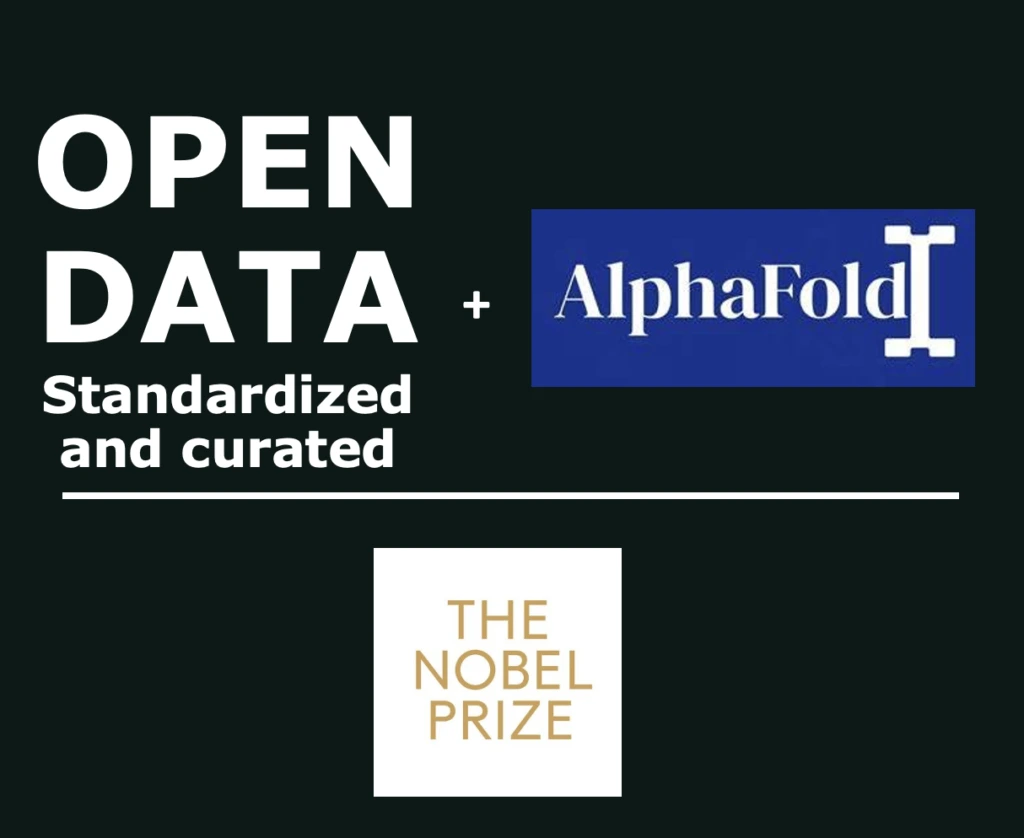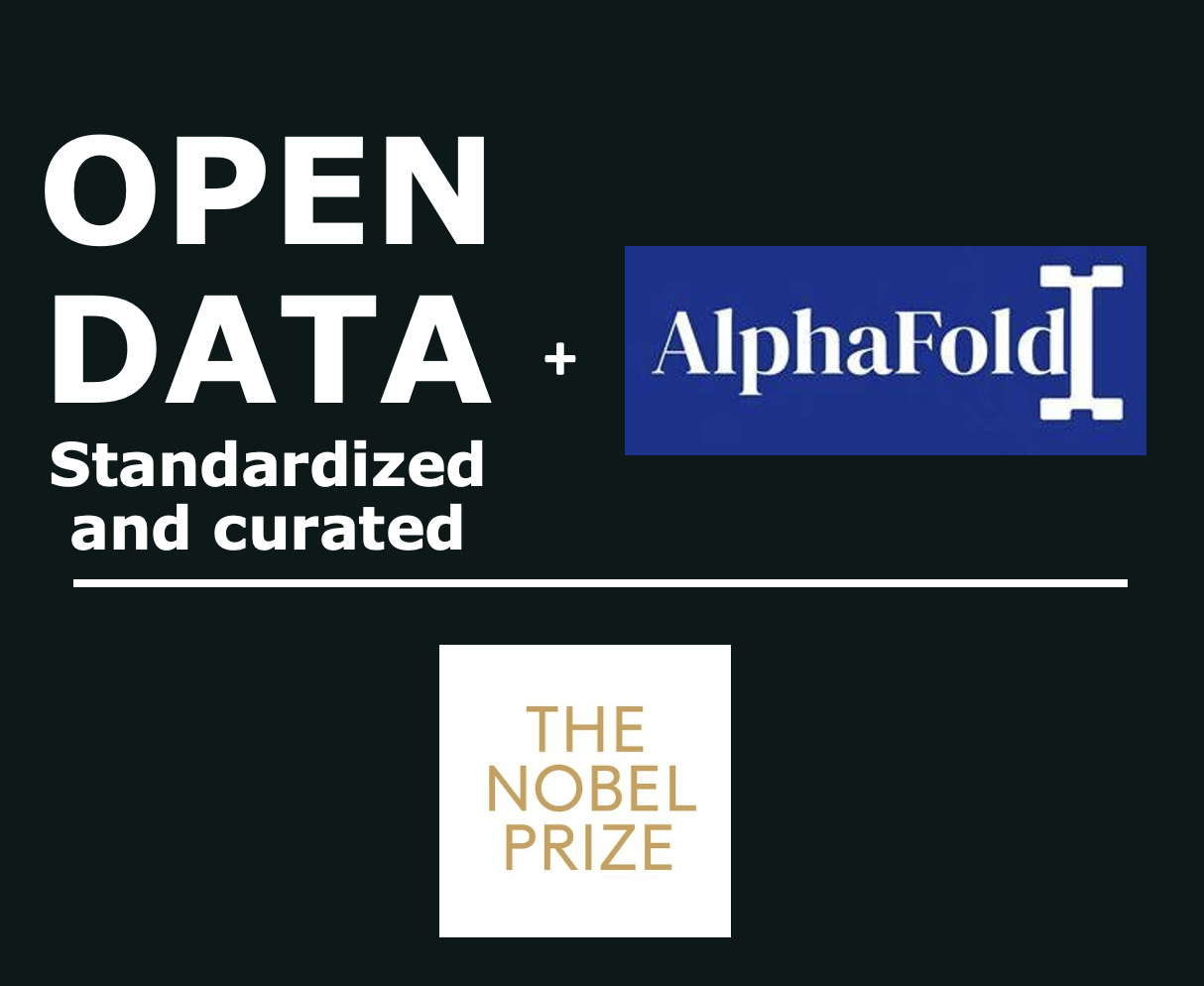
How standardized data facilitated AlphaFold development
The 2024 Nobel Prize in Chemistry was awarded to David Baker “for computational protein design” and the other half jointly to Demis Hassabis and John Jumper “for protein structure prediction.” Demis Hassabis and John Jumper groundbreaking work on AlphaFold is a game changer for the scientific community, enabling unprecedented insights into protein structures.
It’s essential to recognize that this remarkable achievement is rooted in the longstanding efforts to standardize and curate protein data. Initiatives like the RCSB Protein Data Bank, Protein Data Bank in Europe (PDBe), UniProt, InterPro and similar initiatives have played a crucial role in creating an ecosystem for protein structure data.
These open data initiatives not only facilitate collaboration and knowledge sharing among researchers but also empower AI advancements by providing high-quality, accessible data. This commitment to open data is fundamental in driving innovation and ensuring that future breakthroughs can build upon a solid foundation of shared scientific knowledge.

The rigorous standardization of protein structure files has facilitated the development of powerful AI models like AlphaFold, allowing them to learn from vast, high-quality datasets. This marks the first instance of AI algorithm creators being awarded a Nobel Prize, likely setting a precedent. It is truly exciting to witness this significant milestone.
As we celebrate these achievements, let’s also commit to continuing our work in data standardization and curation across all scientific domains, including biological, preclinical, and clinical imaging.
Organizations like European Bioinformatics Institute | EMBL-EBI have been instrumental in making AlphaFold freely available to the scientific community and are now contributing to making imaging data open with initiatives like BioimageArchive. Furthermore, archives such as Open Microscopy Environment Image Data Resource (IDR) and RIKEN SSBD are doing excellent work for open image data sharing.
foundingGIDE coordinated by Euro-BioImaging and together with its partners Global BioImaging, Consiglio Nazionale delle Ricerche, EMBL, German BioImaging – Gesellschaft für Mikroskopie und Bildanalyse e.V., RIKEN, National Imaging Facility and Microscopy Australia are committed to enhance imaging data standardisation and interoperability by harmonizing metadata and ontology across biological and preclinical image data repositories.
Adopting standardized data practices not only facilitates cross-study comparisons but also enables the scientific community to harness collective knowledge, driving breakthroughs that may otherwise remain elusive. The impact of AlphaFold and similar innovations illustrates the vital role of standardized data in advancing science and addressing global health challenges.